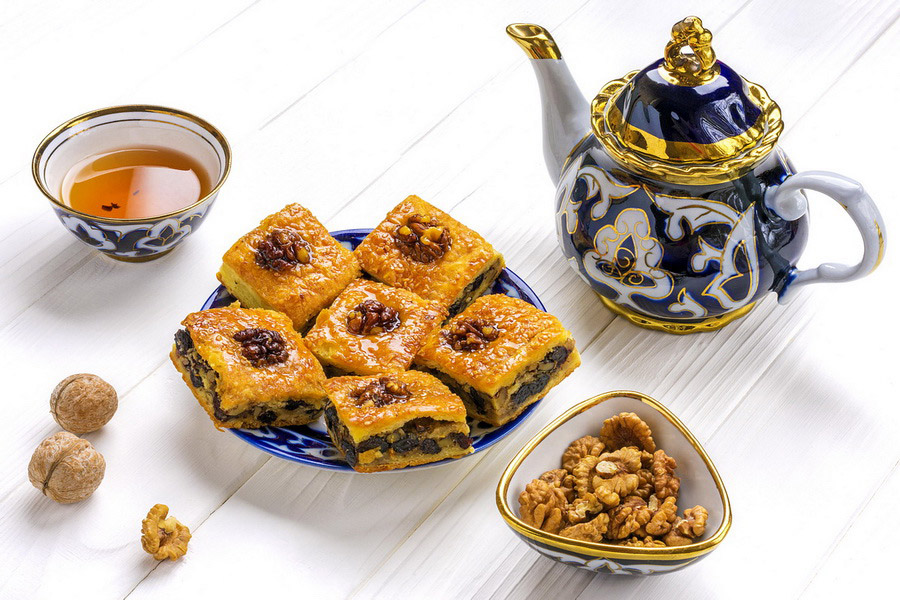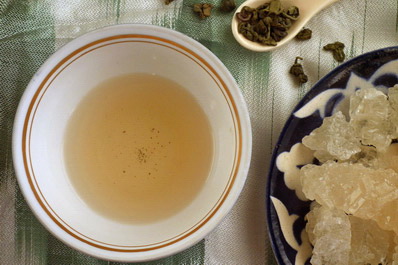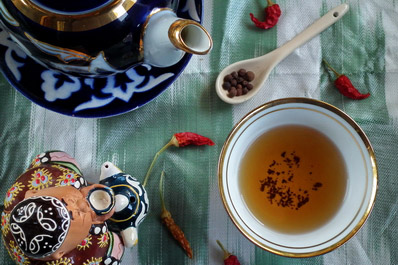Uzbek Tea and Traditional Beverages

In Uzbekistan, tea is not just a drink; it's an entire philosophy. Tea is how guests are greeted and bid farewell. It's over tea that problems are solved, joyful and somber events are commemorated, and leisurely conversations are had. Tea is an essential part of every meal in Uzbekistan, and it has long become a part of the country's culture and traditions.
Firstly, tea reflects the legendary Uzbek hospitality, with every guest immediately offered a steaming cup upon arrival. Secondly, tea boasts unique properties. In winter, it warms, while in summer, when temperatures soar, it cools.
An invitation for tea in Uzbekistan often means you're being invited to a full meal. Moreover, upon visiting, you'll be treated to dishes specially prepared for your arrival, beyond just tea.
Green tea (kuk-choy) is the staple beverage in Uzbek tea culture, known for its health benefits. It's believed to invigorate, reduce stress levels, stimulate digestion, enhance brain function, and lower blood pressure.
Only in Tashkent is black tea (kora-choy) preferred. Interestingly, the famous "Tashkent tea" served in many Uzbek establishments abroad is not truly from Tashkent. It's a blend of black and green teas with plenty of sugar, lemon, and sometimes mint. But in the authentic Tashkent beverage, it's customary to add nothing.
Of course, Uzbeks cannot drink "empty" tea, meaning tea without any accompaniments. Typically, tea is served with navat (crystallized sugar), nuts, dried fruits, and other treats.
The method of brewing Uzbek tea is also special. It's believed that the best way is to pour boiling water over the tea leaves in several stages, pausing in between. However, this method is not universally used. There's a tradition called "kaytar-maytar" employed almost everywhere. This name comes from the Uzbek "kaytmok," meaning "to return." Tea from the teapot is poured into a piala (a handle-less cup), and then poured back into the teapot. This process is repeated three times, and on the fourth, tea is poured into a clean piala. Therefore, in Uzbek cuisine establishments, it's common to see waiters bring one more piala than the number of plates and utensils needed. "Kaytar-maytar" enhances the flavor of the tea leaves, making the taste richer.
Note that Uzbeks usually pour just a little tea into the piala. This is a sign of special respect for the guest. It's believed that the less tea you're poured, the more welcome you are. You might have heard the phrase "tea without respect" – it means a guest has been served a full piala.
Interestingly, when a hostess or daughter-in-law hands you a piala of hot tea, you may notice her right hand is near her heart. This too is a sign of special respect.
Young people prefer non-traditional teas, such as fruit, berry, or those with various spices. In Uzbekistan, mineral water, dried fruit compotes, rosehip drinks, and lemonades are also popular, especially in hot weather.
In recent years, coffee culture has been growing in Uzbekistan. Tashkent and other major cities boast numerous coffee shops serving grain coffee prepared in various ways.



